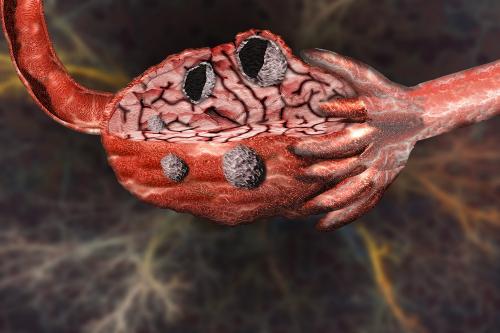Table of Content
Polycystic Ovary Syndrome shortly referred to as PCOS is a common health issue among most of the teenage girls and young women. The preliminary symptom of this disease is the presence of enlarged ovary in small cysts. This is also accompanied by hormonal imbalance. The hormone androgen, which is generally a male sex hormone increases. This causes excessive hair growth, a phenomenon referred to as hirsutism. Further symptoms include disrupted menstrual cycle and irregularities. This causes improper ovulation. Thereby hindering the pregnancy and causing infertility in the individual.
The disease could further be complicated causing Type. 2 Diabetes in PCOS women. This also causes obesity and increased levels of Low-Density Lipoprotein (LDL). A combination of all these can cause a heart attack. Due to the hormonal imbalance, the uterine linings may develop into endometrial cancer as well.
The Diet and PCOS relationship
Women who consume food rich in carbohydrates and sugars, usually gain weight easily. This is because they cannot utilise all the insulin produced in their body. Because of this lesser utilisation, the body further secretes insulin in large quantities. High insulin levels in the blood stimulate excess production of male sex hormones. The result of which is PCOS. All this implies that the diet pattern and food consumed has an impact on the ovaries.
Do’s in your diet
The first important thing to do here is to control the secretion of insulin. This can be done by increasing the fibre content of the food consumed. The enhanced fibre content in the food means slower digestion and hence slower absorption of sugar. This is particularly in the case of soluble fibres. Fibres are of two kinds namely soluble fibres and insoluble fibres. Soluble fibres are found mainly in wholegrain, cereals, fruits and vegetables. Nuts like almonds are also rich sources of Soluble fibres. Vegetables like Broccoli, Cauliflower, Beans, sweet potatoes and pumpkins are rich sources of fibres. Include them in your diet to keep your uterus healthy. The high fibre in the food can also help to reduce obesity and keep the LDL levels under check. Weight reduction can help reduce further complications.
Proteins are simply referred to as the building elements of the body. Proteins are essential regulators of body weight and also play an important role in controlling PCOS. Meat and fish are sources that contain very high levels of protein. Including them in your diet can help to prevent PCOS and also in the recovery process.
Anti-inflammatory foods also play a vital role in this syndrome. Inflammation is the result of a triggered immune response to external invaders. But in certain cases, inflammation can happen without an invasion. In such cases, anti-inflammatory foods could play a major role. These foods can also be beneficial in PCOS. This includes green leafy vegetables, nuts, fruits like cherries, strawberries, blueberries and tomatoes. Fatty fishes like salmons are also rich in the anti-inflammatory effect.
Have a DASH (Dietary Approaches to Stop Hypertension) diet. This includes all the healthy foods that are mentioned above. The ultimate aim of this diet is to reduce the risk of arterial diseases. This helps to reduce the complications caused due to PCOS.
Don’ts in your Diet
Avoid consumption of food rich in sugars. Sugar-rich foods can cause an imbalance in your insulin metabolism. Thereby increasing the chances of PCOS. Refined carbohydrates containing foods such as muffins, pastries, white bread and all desserts are considered highly risky for PCOS patients. Avoid excessive consumption of these foods in general. Noodles, pasta and semolinas are all made from refined flour and increase the risk of PCOS. Use a healthy replacement for noodles and pasta. Whole wheat bread and pasta are considered healthy alternatives.
Avoid excessive sugar in your diet. Sugar can come in various forms. People mistake sugar to be present only in chocolates and candies. This isn’t true. All carbonated drinks contain excessive sugar in them. Apart from this, chips and other snacks also contain high sugar content. Snacks are usually considered unhealthy foods and avoid them to keep your body healthy.
Reduce consumption of inflammatory foods. This includes fries and processed meats. All this causes inflammation and causes an imbalance in the hormonal levels. Inflammatory foods also include junk foods, that are mainly deep fried consumables. Margarine is yet another disastrous inflammatory food that can spoil your health.
Apart from Diet, minute changes in lifestyle will also have a great impact on PCOS. Meditation and other physical exercises will help reduce obesity and also minimises LDL to some extent. Track your menstrual cycle to make sure there are no abnormalities in it. Diet alone cannot function effectively to prevent this disorder. Monitor your body and keep track of it regularly. Because a healthy person means, the individual is free from both diseases as well as disorders.
.webp)





_1735214375.webp)









